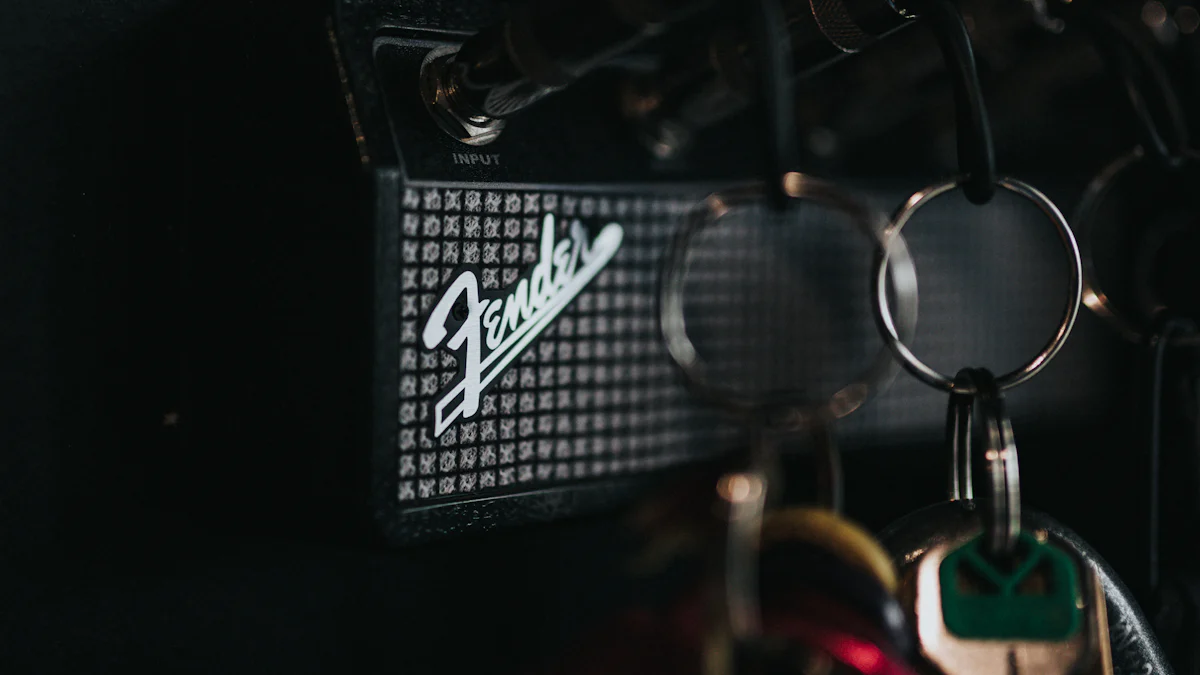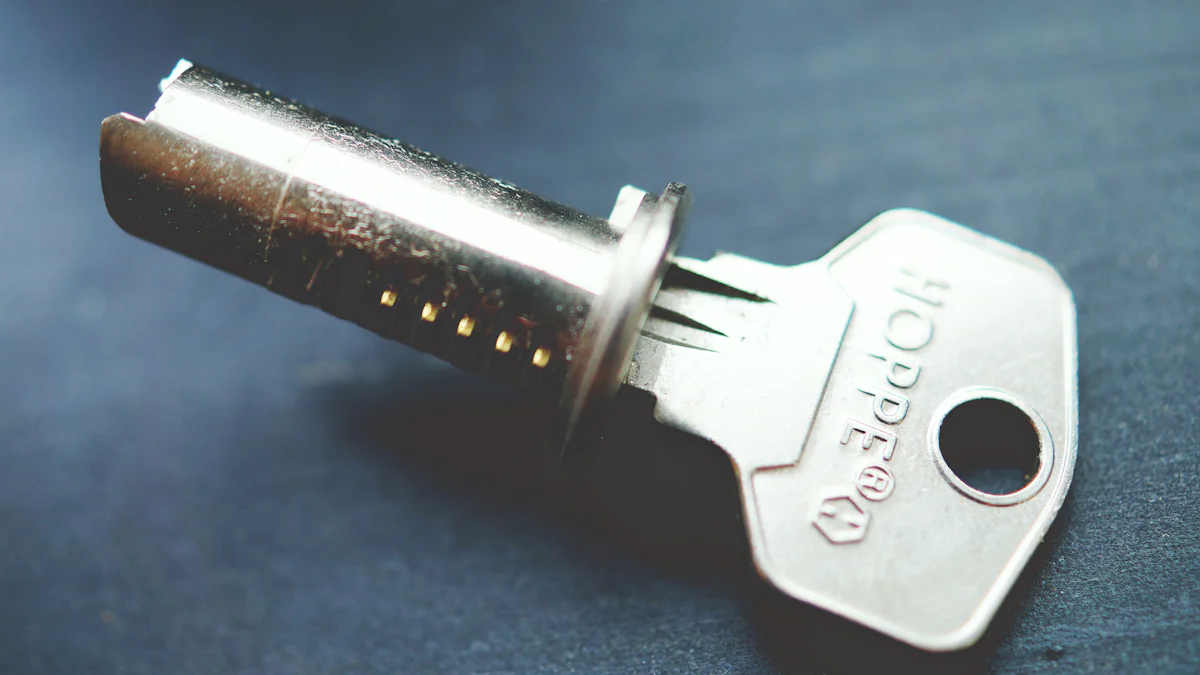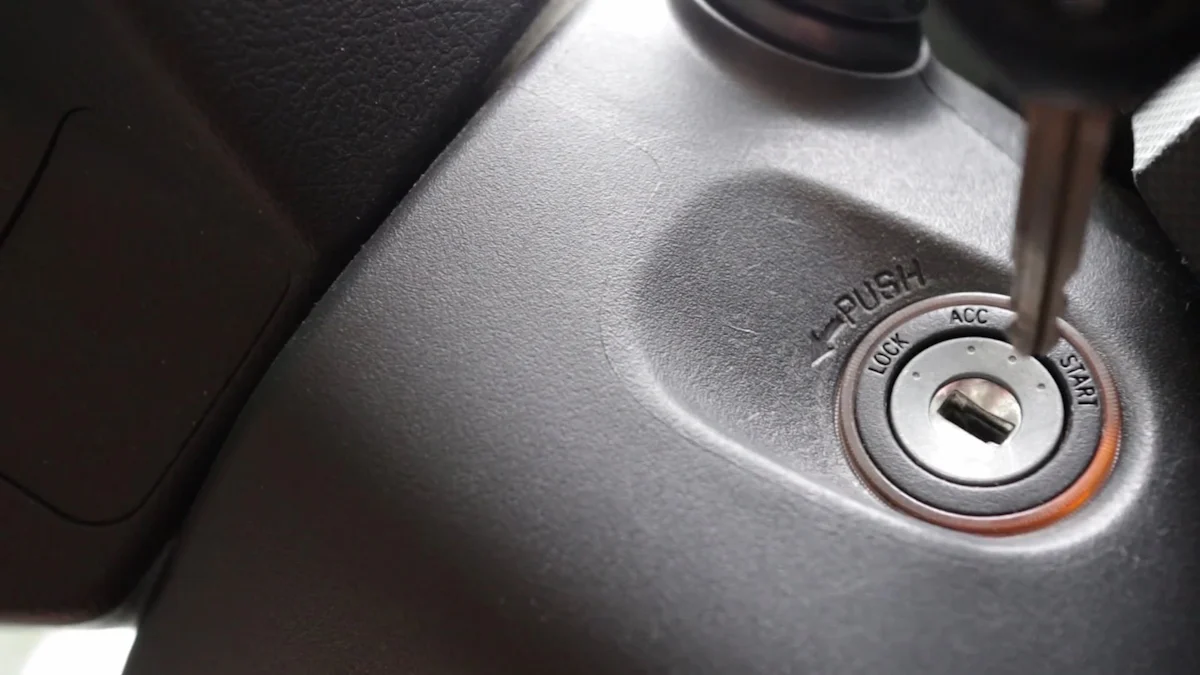How Does a Key Cutting Machine Work Best?

Key cutting machines play a vital role in creating precise duplicates of keys, and understanding how does a key cutting machine work can help you choose the right one for your specific needs. The type of key you want to cut and the level of precision required are important factors to consider. Manual machines rely on your skill to guide the cutter, making them ideal for basic tasks. In contrast, automatic machines use advanced technology to deliver faster and more accurate results. These machines often require minimal input, allowing you to focus on efficiency while the machine handles the intricate work.
Key Takeaways
- Understand the difference between manual and automatic key cutting machines to choose the right one for your needs.
- Manual machines are cost-effective and ideal for basic key duplication, but they require skill and can be time-consuming. Automatic machines offer speed and precision, making them suitable for high-volume operations and complex key designs.
- Consider your budget and maintenance preferences; manual machines are easier and cheaper to maintain, while automatic machines may require more upkeep.
- Evaluate the volume and type of keys you need to cut; automatic machines excel with high-security and intricate keys.
- Invest in a machine that aligns with your skill level; automatic machines are user-friendly for beginners, while manual machines require practice. Assess your current and future key cutting needs to make an informed decision that maximizes efficiency and effectiveness.
How Does a Key Cutting Machine Work?
Key cutting machines are essential tools for locksmiths and businesses that require precise key duplication. These machines replicate the unique profile of a key onto a blank key, ensuring an exact match. Understanding how these machines function can help you make informed decisions when selecting the right one for your needs.
What is a Key Cutting Machine
A key cutting machine is a device designed to create duplicates of keys by copying the cuts and grooves from an original key onto a blank. This process involves aligning the original key and the blank key in the machine, which then uses a cutting tool to replicate the pattern. The result is a new key that matches the original in shape and functionality.
Key cutting machines are widely used in locksmithing, automotive services, and even by security professionals. They offer a reliable solution for replacing lost keys or creating spares. For example, the XToolUSA Triton Plus Automotive Key Cutting Machine is specifically designed for automotive keys, providing high precision and efficiency for locksmiths specializing in this area.
Types of Key Cutting Machines
Key cutting machines come in various types, each suited for different purposes. The two primary categories are cutting machines: manual and automatic machines.
Manual Key Cutting Machines
However, the quality of the cut depends heavily on your expertise. Variations in precision can occur if the operator lacks experience or makes errors during the process. how does the mechanism involve placing the original key and the blank key in the machine, aligning them properly, and manually operating the cutter to replicate the key's profile.
Manual machines are ideal for basic key duplication tasks. They are cost-effective and straightforward to use, making them a popular choice for small-scale operations. However, the quality of the cut depends heavily on your expertise. Variations in precision can occur if the operator lacks experience or makes errors during the process.
Automatic Key Cutting Machines
Automatic key cutting machines use advanced technology to simplify the duplication process. These machines often feature software-guided procedures, allowing you to input key-cutting data and let the machine handle the rest. For instance, the Ilco's Futura Pro Automatic Key Cutting Machine combines two cutting stations into one compact device, making it user-friendly even for beginners.
Automatic machines excel in speed and accuracy. They can handle a wide variety of key types, including high-security and vehicle keys. The Supracode Electronic Key Cutting Machine, for example, offers precise machining and even includes an automatic engraving feature for added convenience. These machines are perfect for high-volume operations, as they require minimal operator involvement and deliver consistent results.
How Manual Key Cutting Machines Work

Manual key cutting machines offer a straightforward approach to duplicating keys. These machines rely on your skill and precision to replicate the unique profile of an original key onto a blank. Understanding their process, advantages, and limitations can help you decide if they are the right choice for your needs.
Process and Mechanism
The operation of a manual key cutting machine involves several steps. First, you secure both the original key and the blank key in the machine's clamps. Proper alignment is crucial to ensure the duplicate matches the original. Once aligned, you guide the cutting blade manually along the profile of the original key. The blade traces the grooves and cuts the blank key to replicate the original's shape.
These machines often include a hand crank or lever that you control to move the cutting blade. Your precision during this process determines the quality of the duplicate. Manual machines require you to trace the depth and spacing of the original key accurately. This hands-on approach makes them ideal for basic key duplication tasks, especially when advanced technology is unnecessary.
Advantages of Manual Machines
Manual key cutting machines provide several benefits, particularly for small-scale operations or individual users.
- Cost-Effectiveness: These machines are more affordable than automatic models, making them a practical choice for budget-conscious users.
- Simplicity: Their design is straightforward, allowing you to operate them without extensive training or technical knowledge.
- Reliability: Manual machines are durable and less prone to technical malfunctions, as they lack complex electronic components. You have full control over the cutting process, which can be advantageous for creating custom or specialized keys.
These features make manual machines a dependable option for locksmiths or businesses that handle low to moderate volumes of key duplication.
Limitations of Manual Machines
Despite their benefits, manual key cutting machines come with certain drawbacks.
- Skill Dependency: The quality of the duplicate depends heavily on your expertise. Inexperienced operators may struggle to achieve consistent results.
- Time-Consuming: Manual operation requires more time compared to automatic machines, especially for intricate key designs.
- Learning Curve: Mastering the use of these machines takes practice. High-security keys, in particular, demand precision and patience.
- Limited Versatility: Manual machines are less suitable for cutting complex or high-security keys, which often require advanced technology.
While these limitations may not affect basic duplication tasks, they can pose challenges for users who need to handle a wide variety of key types or high volumes of work.
How Automatic Key Cutting Machines Work

Automatic key cutting machines revolutionize the process of duplicating keys by integrating advanced technology. These machines minimize the need for manual effort, making them an excellent choice for high-volume operations or intricate key designs.
Process and Mechanism
Automatic key cutting machines operate using a combination of software and precision hardware. The process begins when you place the original key and a blank key into the machine. Once secured, the machine scans the original key to map its unique grooves and cuts. This data guides the cutting tool to replicate the exact pattern onto the blank key.
The cutting mechanism in these machines is computer-controlled. This ensures that every cut matches the original key with high accuracy.
Advantages of Automatic Machines
Automatic key cutting machines offer several advantages that make them a preferred choice for professionals and businesses:
- Speed and Efficiency: These machines complete the duplication process much faster than manual machines. This makes them ideal for locksmiths handling large volumes of keys.
- High Precision: The computer-guided cutting tools ensure that every duplicate matches the original key with exceptional accuracy. This is particularly useful for high-security or complex key designs.
- Ease of Use: Many automatic machines feature software-guided procedures. Even if you are new to key cutting, you can operate these machines with minimal training.
- Versatility: Automatic machines can handle a wide variety of key types, including vehicle keys and high-security keys. This versatility makes them suitable for diverse applications.
- Reduced Skill Dependency: Unlike manual machines, automatic models do not rely heavily on the operator's expertise. The machine handles most of the work, reducing the learning curve.
These benefits make automatic key cutting machines a valuable investment for those seeking precision and efficiency in their operations.
Limitations of Automatic Machines
Despite their advantages, automatic key cutting machines have certain limitations that you should consider:
- Higher Cost: These machines are more expensive than manual models. The advanced technology and additional features contribute to their higher price point.
- Maintenance Requirements: Automatic machines include electronic components and software, which may require regular updates and maintenance. This can add to the overall cost of ownership.
- Complex Repairs: If the machine malfunctions, repairs can be more complicated and costly compared to manual machines.
- Dependence on Power: Automatic machines require a stable power source to function. This can be a limitation in areas with unreliable electricity.
While these drawbacks may not affect all users, they are important to consider when deciding whether an automatic key cutting machine is the right choice for your needs.
Manual vs Automatic Key Cutting Machines: A Comparison
When deciding between manual and automatic key cutting machines, understanding their differences can help you make the right choice. Each type offers unique benefits and challenges, depending on your needs and expertise.
Efficiency and Speed
Efficiency and speed are critical factors when choosing a key cutting machine. Manual machines rely entirely on your input. You must guide the cutter along the key's profile, which takes time and effort. This makes manual machines slower, especially for intricate designs or high volumes of keys. They are better suited for small-scale operations where speed is not a priority.
Automatic machines, on the other hand, excel in speed. These machines use computer-driven systems to perform cuts with minimal operator involvement. Once you input the key specifications, the machine handles the rest. This allows you to focus on other tasks while the machine works. For high-volume operations, automatic machines save significant time and boost productivity.
Key Insight: If you need to duplicate keys quickly and efficiently, automatic machines outperform manual ones. However, for occasional use, manual machines may suffice.
Accuracy and Precision
Precision plays a vital role in key duplication. Manual machines depend on your skill to replicate the original key accurately. Any slight error in guiding the cutter can result in a poorly functioning duplicate. This makes manual machines less reliable for complex or high-security keys.
Automatic machines deliver unmatched accuracy. Their computer-guided cutting tools ensure every cut matches the original key's design. This precision is especially valuable for high-security keys or automotive keys, where even minor errors can cause issues. Automatic machines also maintain consistent quality, regardless of the operator's experience.
Key Insight: For tasks requiring high precision, automatic machines provide better results. Manual machines may struggle to achieve the same level of accuracy.
Ease of Use and Learning Curve
Ease of use is another important consideration. Manual machines have a straightforward design, but they require practice to master. You need to develop the skill to align keys properly and guide the cutter with precision. This learning curve can be challenging for beginners.
Automatic machines simplify the process significantly. Many models feature user-friendly interfaces and software-guided procedures. You only need to input the key data, and the machine does the rest. This makes automatic machines accessible even to those with little experience. However, their advanced technology may feel overwhelming initially, especially if you're unfamiliar with computerized systems.
Key Insight: If you prefer simplicity and control, manual machines are a good option. For ease of use and minimal training, automatic machines are the better choice.
Cost and Maintenance
When choosing between manual and automatic key cutting machines, cost and maintenance play a significant role in your decision. Understanding these factors can help you determine which machine aligns with your budget and operational needs.
Cost
Manual key cutting machines are generally more affordable. Their straightforward design and lack of advanced technology make them a cost-effective option for small businesses or individuals. If you’re starting out or only need to duplicate keys occasionally, a manual machine offers excellent value for money.
Automatic key cutting machines, on the other hand, come with a higher price tag. The integration of computer-driven systems and precision hardware increases their cost. However, this investment pays off for professionals or businesses handling high volumes of keys. The speed and accuracy of automatic machines can save you time and reduce labor costs in the long run.
Key Insight: If you prioritize affordability and simplicity, manual machines are the better choice. For long-term efficiency and high-volume operations, automatic machines justify their higher cost.
Maintenance
Manual machines require minimal maintenance. Their simple mechanical structure makes them durable and less prone to breakdowns. You only need to clean and lubricate the moving parts occasionally to keep them in good working condition. This low-maintenance requirement reduces ongoing expenses and ensures reliability.
Automatic machines demand more attention. Their advanced components, including electronic systems and software, require regular updates and servicing. If a malfunction occurs, repairs can be complex and costly. Additionally, these machines depend on a stable power source, which may pose challenges in areas with unreliable electricity.
Key Insight: Manual machines are easier and cheaper to maintain, making them ideal for users who prefer low upkeep. Automatic machines, while requiring more maintenance, offer unmatched precision and efficiency for those willing to invest in their upkeep.
Final Thoughts
When evaluating cost and maintenance, consider your specific needs and budget. Manual machines suit users seeking affordability and simplicity. Automatic machines, though more expensive and maintenance-intensive, provide superior performance for high-demand scenarios. By weighing these factors, you can choose the machine that best supports your key cutting requirements.
Choosing the Right Key Cutting Machine for Your Needs
Selecting the right key cutting machine depends on your specific requirements. Whether you are a locksmith, a business owner, or an individual, understanding the factors that influence your choice can help you make an informed decision. choosing a key cutting machine
Factors to Consider
When choosing a key cutting machine, you need to evaluate several important factors. These considerations will ensure that the machine you select aligns with your needs and expectations.
- Volume of Keys: If you handle a high volume of key duplication, an automatic machine is the best choice. It works faster and requires less effort. For occasional use, a manual machine may suffice.
- Type of Keys: The type of keys you plan to duplicate plays a significant role. Manual machines are suitable for basic keys, while automatic machines excel at cutting complex or high-security keys.
- Budget: Your budget determines the type of machine you can afford. Manual machines are more affordable and require minimal maintenance. Automatic machines, though more expensive, offer advanced features and higher efficiency.
- Skill Level: If you are new to key cutting, an automatic machine with user-friendly software can simplify the process. Manual machines require more skill and practice to achieve precise results.
- Space Availability: Consider the space where you will place the machine. Automatic machines are often larger and require a stable power source. Manual machines are compact and portable, making them ideal for smaller workspaces.
Pro Tip: Assess your current and future needs before making a purchase. Investing in the right machine now can save you time and money in the long run.
Both manual and automatic key cutting machines serve distinct purposes based on your needs. Manual machines offer a cost-effective solution for basic key duplication. They are reliable and straightforward, making them suitable for small-scale operations. Automatic machines, however, excel in precision and efficiency. These machines cater to professionals or businesses managing high volumes of keys or complex designs.
Key Takeaway: The best key cutting machine is the one that matches your specific requirements, skill level, and budget. Evaluate your priorities carefully to make an informed decision that supports your goals effectively.
FAQ
What is the difference between manual and automatic key cutting machines?
Manual key cutting machines require you to guide the cutting process by hand. You align the keys and operate the cutter manually, which demands skill and precision. Automatic machines, on the other hand, are computer-driven. They perform the cutting process independently, offering faster and more accurate results with minimal effort from you.
Key Insight: Manual machines are cost-effective but depend on your expertise. Automatic machines provide speed and precision, making them ideal for high-volume tasks.
Are automatic key cutting machines worth the higher cost?
Automatic machines justify their higher cost if you need efficiency and precision.
Pro Tip: If you only need occasional key duplication, a manual machine may be more economical.
Can I use a manual key cutting machine for high-security keys?
Manual machines struggle with high-security or complex key designs. These keys often require advanced technology for precise cuts. Automatic machines excel in this area, as they can handle intricate patterns with accuracy.
Recommendation: Choose an automatic machine if you frequently work with high-security keys.
How much skill is needed to operate a manual key cutting machine?
Using a manual machine requires practice and attention to detail. You must align the keys properly and guide the cutter accurately. The quality of the duplicate depends on your expertise, so beginners may face a learning curve.
Tip: Start with basic key designs to build your skills before attempting more complex tasks.
Do automatic machines require regular maintenance?
Yes, automatic machines need regular maintenance to function optimally. Their electronic components and software may require updates, and you should clean and inspect the machine periodically. Neglecting maintenance can lead to malfunctions or reduced performance.
Advice: Follow the manufacturer’s guidelines for maintenance to extend the machine’s lifespan.
What are semi-automatic key cutting machines?
Semi-automatic machines combine features of manual and automatic models. You control certain aspects of the process, while the machine handles others. This balance simplifies the cutting process and reduces the skill required compared to manual machines.
Example: Semi-automatic machines are ideal for users who want some control but also value automation.
Can automatic machines cut all types of keys?
Automatic machines are versatile and can handle a wide variety of key types, including vehicle keys and high-security keys. Their computer-guided systems ensure precise cuts, even for complex designs.
Key Insight: Check the machine’s specifications to ensure it supports the key types you need.
Which machine is better for small-scale operations?
For small-scale operations, manual machines are often the better choice. They are affordable, compact, and require minimal maintenance. If you only duplicate keys occasionally, a manual machine provides excellent value.
Tip: Consider your workload and budget before deciding.
Do automatic machines require technical knowledge to operate?
Most automatic machines feature user-friendly interfaces and software-guided procedures. You input the key data, and the machine handles the rest. Even if you lack technical expertise, you can operate these machines with minimal training.
Pro Tip: Look for models designed for beginners if you are new to key cutting.
How do I choose the right key cutting machine?
To choose the right machine, consider factors like the volume of keys you handle, the types of keys you need to cut, your budget, and your skill level. Manual machines suit basic tasks and low budgets, while automatic machines excel in high-volume and complex key duplication.
Final Thought: Assess your current and future needs to make an informed decision.
See Also
Understanding The Functionality Of Key Cutting Machines
Tips For Efficiently Using A Key Cutting Machine
Guide To Duplicating Keys With A Key Cutting Machine
